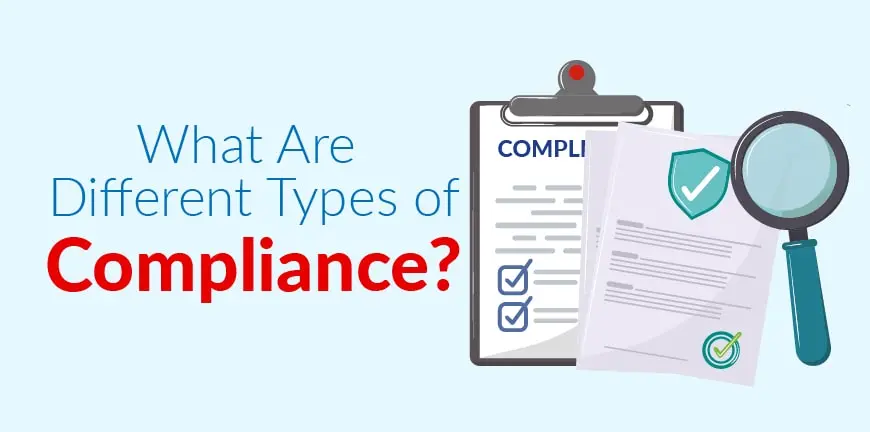
Winning the Talent War in the Semiconductor Industry
29/04/2024
What is Seasonal Employment?
07/05/2024Compliance is a huge deal for every business, whether small, mid-sized or large corporations. In India, there are several types of compliance that businesses must be aware of and adhere to, in order to operate at optimum efficiency. Additionally, they must also make sure that they keep themselves updated about the changes in laws and regulations relevant to their business.
Understanding Compliance
The meaning of compliance is the adherence to the rules and regulations imposed by government bodies and the organisation. Every business has a different policy and set of rules and regulations they must follow to run their business operations and maintain a standard workplace environment that protects the interests of employees as well as help the company stay compliant and run smoothly.
What is the Importance of Compliance?
Compliance is an important part of every business. It governs the operations, workplace standards with a set of rules and regulations imposed by government bodies as well as the organization itself. The different types of compliance in businesses are important to keep away from fines and penalties and maintain its brand reputation in the industry. Some of the major benefits of Compliance are-
- It improves operational efficiency of businesses.
- Builds trust with clients, customers, stakeholders, and other business partners.
- Eliminates legal risks and avoids fines and penalties caused due to non-compliance.
- Compliance improves employee morale and reduces attrition.
- Boosts employee efficiency and in turn increases the productivity of the organization].
- Gives the brand an enhanced reputation.
What are the Different Types of Compliance?
As your business grows compliance becomes an increasingly important. There are several types of compliance that businesses must follow relevant to their industry as imposed by the government bodies, as well as compliance policies created within the organisation for the wellbeing of employees as well as the continuity of business operations. The types of compliance in HR ensure your business is operating as per employment laws. There are two major types of compliances under which there are several sub-categories depending on the business.
1. External Compliance
External Compliance are regulated by the government bodies. They are a set of rules and regulations issued to companies to follow in-order to protect employee rights, as well as help businesses build trust among clients and other stakeholders and operate in a standard working environment facilitated by certain set policies.
Under external compliance comes all the acts and laws and standard rules to be followed to register your company and run the operations as per a set standard as dictated by the government bodies. Some main functions include the filing of tax returns, submission of annual reports and other requirements under labour law.
There are two main compliances that fall under External Compliance-
Statutory Compliance
There were certain laws established by the state and central government since the time of work in India to ensure employee welfare and protection of employer employee relationship. Most of these laws are applicable to all organizations, while, of course, some are exempt from a few of them depending on the nature and strength of the organization.
- The Employees Compensation ACT-1923
- The Trade Unions Act of 1926
- The Payment of Wages Act-1936
- The Industrial Disputes ACT of 1947
- The Factories ACT of 1948
- The Minimum Wages Act-1948
- The Employees State Insurance Corporation Act – 1948 (ESIC)
- The Employees Provident Funds and Miscellaneous Provision Act – 1952 (EPF)
- The Employment Exchange (Compulsory Notification of Vacancies) ACT-1959
- The Maternity Benefit Act of 1961
- The Apprentice ACT, 1961
- Shops and Commercial Establishments Act (S&E)
- The Professional Tax Act (PT) 1975
- The Labour Welfare Fund Act (LWF) 1965
- The Contract Labour (Regulation & Abolition) Act – 1970 (CLRA)
- The Child Labour (Prohibition & Regulation Act), 1986
- The Payment of Bonus Act 1965
- The Payment of Gratuity Act 1972
- The Equal Remuneration Act-1976
- The Industrial Establishment (N&FH) ACT 1963
- Sexual Harassment of Women at Workplace (Prevention, Prohibition and Redressal) Act 2013
All these Acts were crafted for the sole purpose of protecting employee’s rights and welfare as well as for workplace safety and protection of all workers alike.
All the registered must align their business operations and with these Acts and follow their rules and regulations, failing which, there could be profound consequences along with heavy penalties and fines they will be liable to pay.
Regulatory Compliance
Regulatory compliance is one that involves adhering to laws and regulations set by government bodies, industry specific organizations or international standards. It ensures that businesses operate adhering to specific standards, following ethical principles.
1. Tax laws and regulations
There are certain laws and regulations organizations must comply to and pay and report their taxes on time to the government bodies. This includes income tax, sales tax, payroll tax, and other applicable taxes.
2. Employment laws and regulations
This involves adherence to laws and regulations related to employment practices that are relevant to the wellbeing and protection employees such as minimum wage, overtime, working hours, anti-discrimination, and health and safety standards.
3. Environmental compliance
This is imposed with focus on safeguarding the environment. Industries are required follow certain rules to not harm the surrounding causing as less damage as possible. The regulations could be related to waste management, emissions, pollution control, and sustainable practices.
4. Financial compliance
Publicly traded companies and organisations may have to comply with financial reporting standards imposed by regulatory bodies, such as the International Financial Reporting Standards (IFRS) or the Generally Accepted Accounting Principles (GAAP).
5. Consumer protection laws
This is aimed at protecting consumers’ rights and ensuring fair business practices. This may involve disclosure requirements, product safety standards, or handling customer complaints appropriately.
2. Internal Compliance
Internal Compliance refers to the adherence of policies and procedures crafted within organizations for the safety, welfare, and protection of employees as well as fair working practices that are implemented to ensure ethical conduct, data security, and operational efficiency.
1. Employee code of conduct
This includes a set of policies that is aimed at providing employees with code of conduct in the workplace to ensure professional and ethical standards at the workplace.
2. Data privacy policies
As the name suggests certain policies and procedures are set in place to protect sensitive and confidential data to make sure compliance with data protection laws and regulations.
3. Financial compliance
Transparency and accuracy when it comes to financial matters in crucial in organizations to help stay in compliance and maintain all important financial records that would be required. This includes proper bookkeeping, financial reporting, and adherence to accounting standards.
4. Human Resources policies and practices
Maintenance of compliance with employment laws and regulations, ensuring fair and ethical treatment of employees, and promoting a safe and inclusive work environment.
5. Health and Safety Regulations
Compliance with health and safety regulations is crucial to maintain a safe and healthy workplace. It includes the implementation of policies and procedures to make sure compliance with occupational health and safety standards.
The purpose of Internal Compliance is to focus on aligning business practices with the organisation’s goals, values, and industry best practices.
Looking for a Reliable Compliance Partner?
Every facet of compliance is essential for businesses to operate responsibly, ethically, and within legal frameworks. Overlooking any compliance aspect can lead to legal repercussions, financial setbacks, reputational harm, and even organizational collapse. Thus, businesses must make compliance a strategic priority, aiming to surpass the standards set by regulators, stakeholders, and the public.
Organizations must prioritize adherence to regulatory requirements to navigate legal frameworks and uphold ethical principles. By maintaining compliance, they safeguard legal standing, minimize risk exposure, and cultivate a culture of ethical behaviour.
As one of the leading compliance service providers in the industry for over two decades, Alp Consulting could be your ideal compliance partner ensuring business compliance across your organisation will help both internal and external operations run smoothly. Get in touch with us today and we’ll help you address your compliance needs effectively.
Contact Us For Business Enquiry

Hariharan Iyer
Hariharan Iyer is the Vice President – Operations at ALP Consulting, bringing over 40+ years of experience in HR outsourcing and labour law compliance. He leads end-to-end HRO operations, ensuring process efficiency, statutory compliance, and seamless service delivery for clients across industries. With a strong background in labour law governance and workforce management, Hariharan plays a key role in driving operational excellence and compliance-led HR solutions at ALP Consulting.




